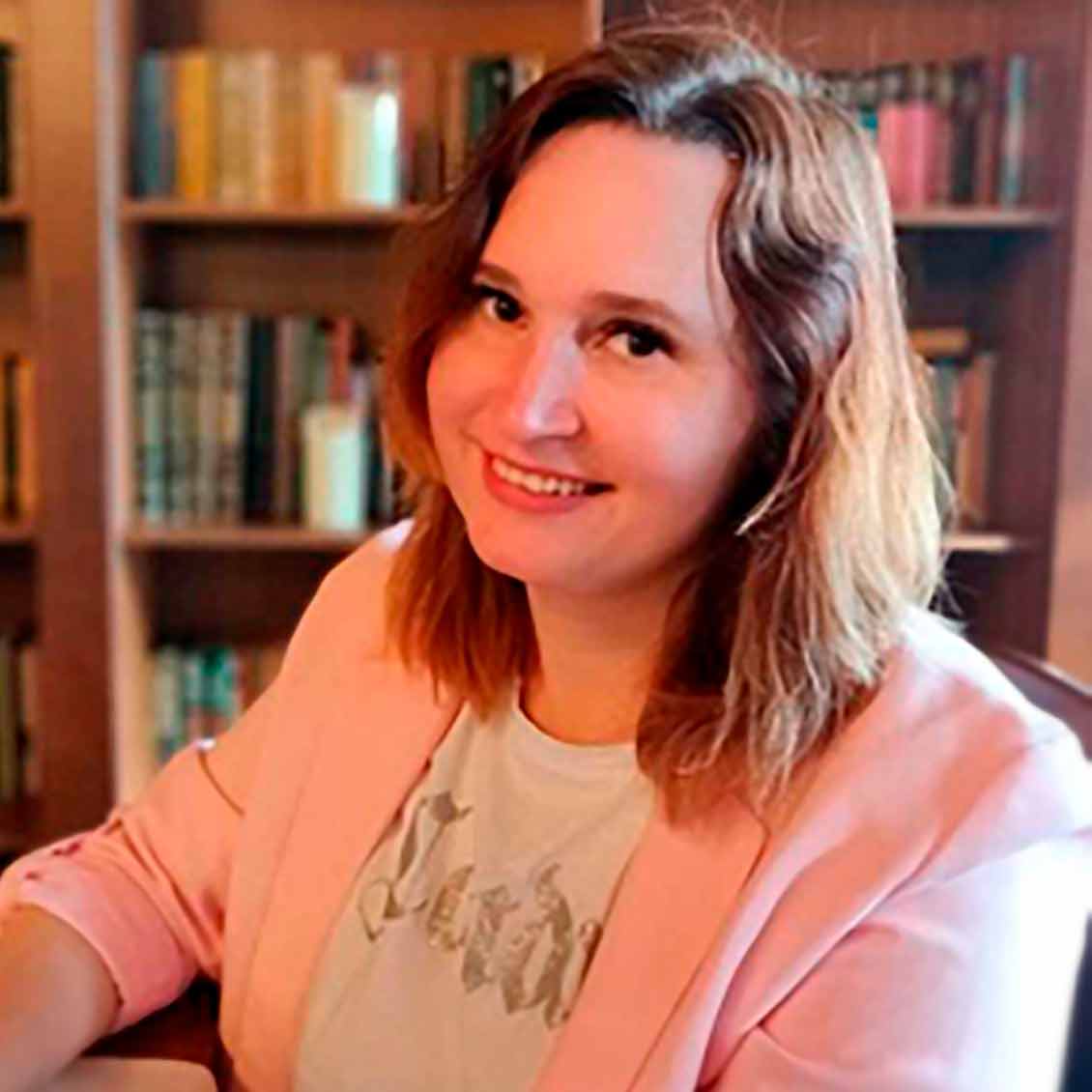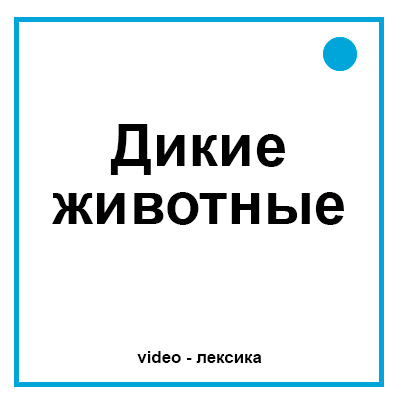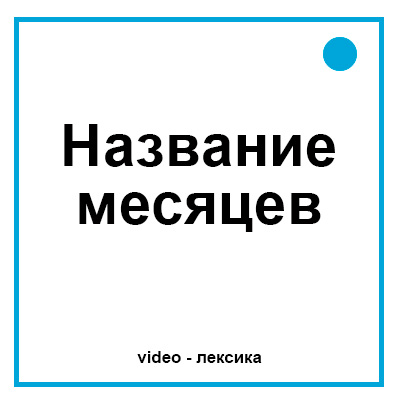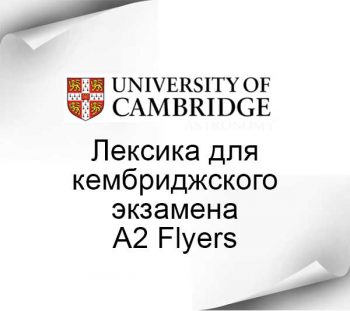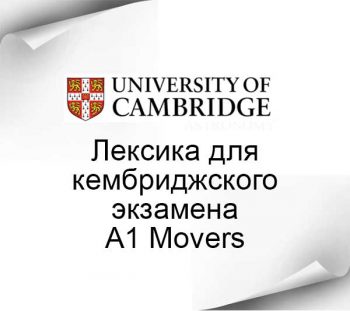Написание истории
A2 Key for Schools Reading and Writing Part 7
Согласно нововведениям 2020 года седьмая часть Reading and Writing — написание истории (раньше седьмая часть — было заполнение пропущенных слов в тексте).
Нужно написать историю объемом 35 слов или больше. Предлагается три картинки.
Какой алгоритм написания истории
1. Посмотрев на картинки подумать:
— Who (кто на картинках)
— Where (какие места показаны)
— What (что происходит).
Можно добавить время:
— Time (желательно добавить время)
2. Сделать заметки по всем трем пунктам, указанным выше и составить историю.
3. История в основном в прошедшем времени (Past Simple, Past Perfect, Past Continuous).
4. Важно включить в историю каждую картинку.
5. Необходимо применять Linking words: so, and, because, but и т.д.
6. Можно писать от себя ‘When I woke up’ или давать имена ‘David woke up late’.
Пример задания и ответа
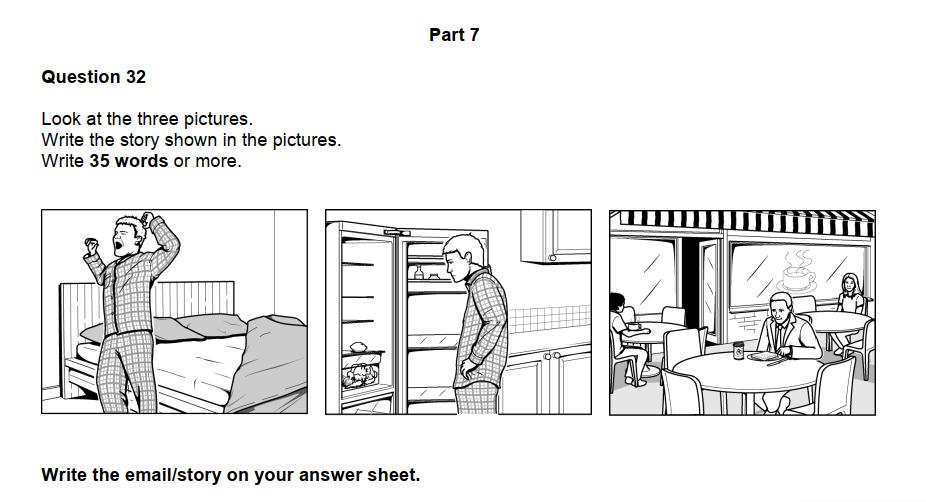
Cambridge English A2 Key 2020, Sample Tests Reading and Writing
Who: a man, David
Where: in the bedroom, in the kitchen, at a restaurant, sidewalk cafe
What: get up, feel hungry, go to the restaurant, wait for breakfast, drink coffee
Пример ответа
It was last Sunday. David got up late. He felt hungry and went to the kitchen to have breakfast. But opening the fridge, the man saw just some vegetables and orange juice because he had forgotten to go shopping the day before. So David decided to go out and eat somewhere at a restaurant. The man found a beautiful sidewalk café nearby and ordered some strong coffee and a tuna sandwich with avocado.
Почему этот ответ хорош для уровня A2
1. Различные грамматические формы: It was, opening the fridge, had forgotten.
2. Linking words: so, but, and.
3. Более детальная и интересная лексика: order, orange juice, nearby, sidewalk café, go out.
Грамматика для написания истории
1. Past Simple. Важно знать форму прошедшего времени основных глаголов.
Take – took — taken
See – saw — seen
Wake – woke — woken
Get – got – got (gotten)
Put – put — put
Do – did — done
Bring – brought — brought
Buy – bought — bought
Say – said — said
Have – had — had
Break –broke -broken
Go – went — gone
Come – came — come
Am, is, are – was, were — been
Find – found — found
Can – could — could
Ring – rang — rung
Tell – told — told
Become – became – become
Forget – forgot – forgotten
Blow – blew –blown
Run – ran — run
2. Прямая речь
‘I’ll need it’, thought Sarah to herself.
Other girls said ‘Good luck’ to each other.
‘I was looking for it everywhere!’
‘Why don’t we cook breakfast today?’ said David.
‘This is delicious’, they said.
‘Are you ready?’ – Tom asked.
‘I’m going swimming now’, said the girl.
‘I’ve never been here before’, said Kate.
‘Hurry up, please!’, said Tom.
‘Be quiet!’ shouted the teacher.
‘Don’t worry, it’ll be ok!’ said her mum to her.
‘Well done, Sarah!’ said the other girls.
‘Thank you so much’, she said.
3. Past Perfect.
My sister told her that we had found her bag.
4. Future Simple.
Next time, I’ll try better and win!
5. Past Continuous.
He was feeling tired after a hard day.
6. Модальные глаголы в прошедшем времени.
Have to – had to
Can — could
May – might
Their parents couldn’t believe it.
7. Правильное употребление предлогов с глаголами
Listen to
Wait for
Look at
Arrive at (in)
Go home
Get to
8. Предлоги времени.
At the weekend
On Sunday
Распространенные ошибки
Правильно – не правильно
Rang – ringed
Didn’t hear – didn’t heard
Arrive at – arrive to
Go home – go to home
Children were happy – children was happy
She couldn’t believe – she can’t believe
Last Sunday – at last Sunday
On Sunday – in Sunday
Уроки английского языка проводятся онлайн.
Все учебники и материалы предоставляются преподавателем.
Ответы на возможные вопросы по процессу обучения онлайн можно прочитать по ССЫЛКE
